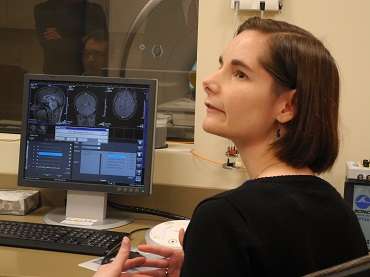Team publishes study on task constraint and task switching

Kessler Foundation scientists have published results of cognitive research that show the negative effects that unexpected task constraint, following self-generated task choice, has on task-switching performance. The article, "You can't always get what you want: The influence of unexpected task constraint on voluntary task switching", was published online on June 11 by The Quarterly Journal of Experimental Psychology . The authors are Starla Weaver, PhD, and Glenn Wylie, DPhil, of Kessler Foundation, John J. Foxe, PhD, of Albert Einstein College of Medicine and Yeshiva University, and Marina Shpaner, PhD, of the University of Vermont. The study was funded by Kessler Foundation.
The 12 healthy adults who participated in the study, performed a voluntary task-switching procedure in which they specified the task they wanted to perform, were presented with a cue that confirmed the choice, and then performed the cued task. For some trials, participants received cues to perform a task that did not match their choice. In those instances, responses were most striking when participants unexpectedly had to repeat the previous task. The performance of the unexpected task was markedly impaired.
"We encounter unexpected task constraint in our daily lives," noted Dr. Weaver. "For example, when we are diverted from our planned route by a detour; or when the film we planned to see is sold out. Our results show that the preparation that an individual undertakes in order to perform a task is difficult to undo," said Dr. Weaver, associate research scientist at Kessler Foundation. "Unexpected task constraint following self-generated task choice has a negative effect on task performance. This suggests that one mechanism used to guide behavior during multitasking is the implementation of swift and durable task-preparation processes (which are difficult to undo). Uncovering the mechanisms that enable multitasking is the first step toward improving the abilities of patients, such as persons with traumatic brain injury, who often display deficits in multitasking ability."
More information: DOI: 10.1080/17470218.2014.917115
















